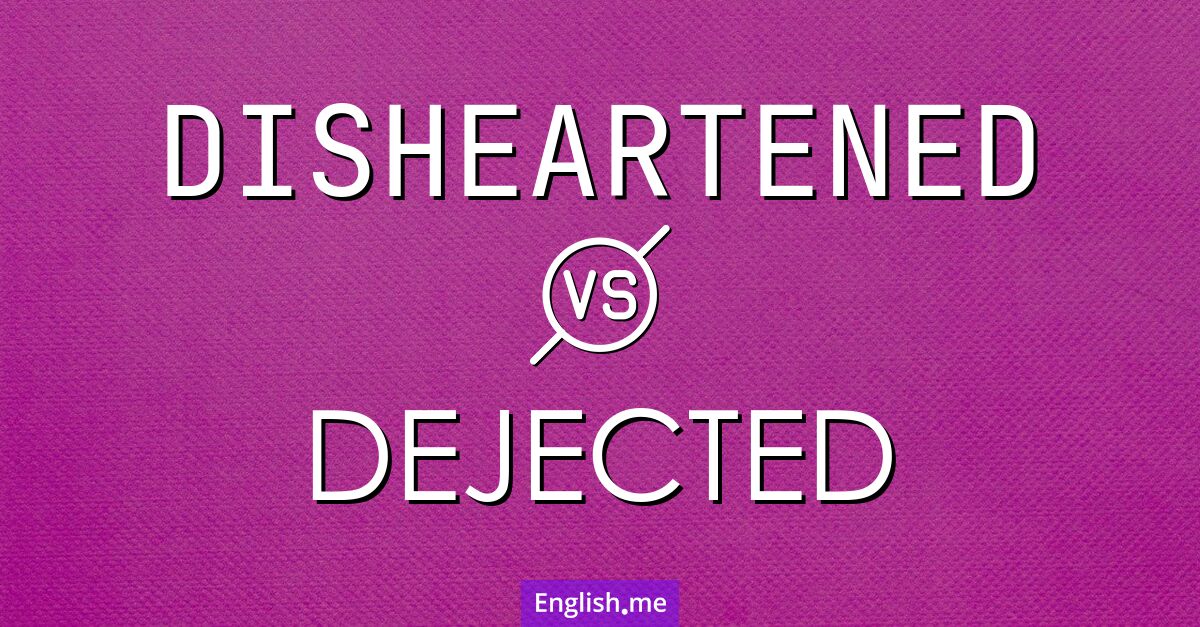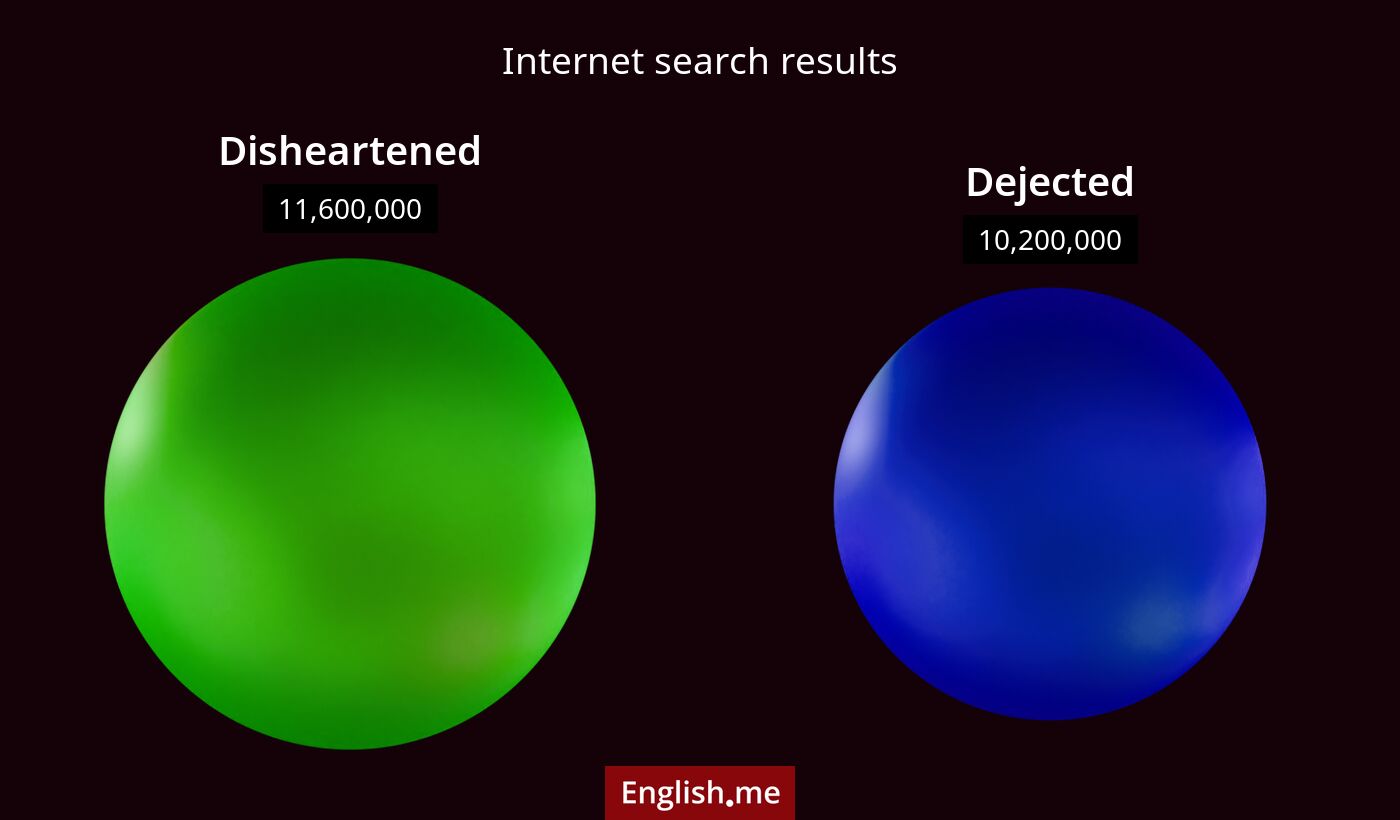"Disheartened" vs "dejected": exploring the shades of sadness
Reviewed and edited by  Lloyd Cooper 09/11/2024, 04:38
Lloyd Cooper 09/11/2024, 04:38
English.me team member

 What is similar?
What is similar?
Both words describe a feeling of sadness, disappointment, or lack of hope. They are often used to convey an emotional state where someone feels let down or discouraged.
 What is different?
What is different?
Disheartened often suggests a loss of spirit or morale, typically due to a specific event or outcome. Dejected implies a deeper, more sustained state of sadness or disappointment that can result from a variety of causes.
 Which one is more common?
Which one is more common?

 Examples of usage
Examples of usage
Disheartened- She felt disheartened after her project proposal was rejected.
- The team was disheartened by their consecutive losses.
- He was disheartened when he didn't get the job he had hoped for.
- He walked home in a dejected manner after the defeat.
- She looked dejected after hearing the bad news.
- He felt dejected when he realized his efforts went unnoticed.

 English
English español
español française
française italiano
italiano deutsche
deutsche 日本語
日本語 polski
polski česky
česky svenska
svenska Türkçe
Türkçe Nederlands
Nederlands